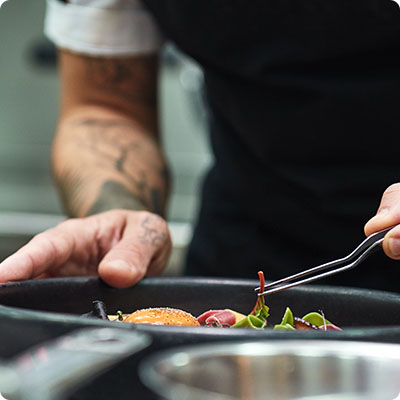Asian spices imported into the Indian Ocean
The spice route had been a lucrative one for Arab traders for millennia. The location of the spice islands in East Timor (Indonesia) was jealously guarded. They were known only to Yemeni and Omani sailors, notably the Moluccan archipelago, renowned for its cloves, cinnamon and nutmeg. These islands did not officially appear in Arab writings until the 14th century. These pioneers of maritime trade set sail from Basra (now in Iraq) for India and Southeast Asia. They returned to sell their goods in Aden, Yemen, where they paid a tax in musk, camphor, ambergris and sandalwood to the Umayyad sultan, Ibn Ziyad. Around 915, a great traveler from Baghdad, Al Masudi, stopped off in Zanzibar. He mentions a trade in precious stones and gold. The best-known of these long-distance adventurers was Sindbad the Sailor, who sailed the seas of Africa and Asia, living out fantastic tales. He fueled legends over the centuries and was immortalized in the Persian tales of the Thousand and One Nights (The Seven Voyages of Sindbad the Sailor) in the 13th century. This Arab trade came to an end with the colonization of the Moluccas by the Dutch. It was a Frenchman, Pierre Poivre, who came up with the idea of importing these spices from the Moluccas to Mauritius, the Seychelles and Reunion, then French colonies, to compete with the monopoly of the Dutch East India Company. Imported to Zanzibar at the end of the 18th century, it was Sultan Saïd who encouraged the planting of clove trees in Unguja and Pemba, to compensate for the financial loss linked to the abolition of slavery under Western pressure. The colonial period also saw the expansion of plantations against the reduction of primary forests.
Cloves, a golden spice
The most lucrative spice has always been cloves. These are the dried buds of clove blossoms, known for their carnation-like odor and taste, and their anesthetic and antibacterial properties, mainly used to relieve toothache. Harvesting the flower buds by hand on a ladder is a long and arduous process. The bunches are trimmed and sorted, then dried on large sheets in the sun. It's an unmissable sight in Pemba, in the countryside in front of the houses. Today, Pemba produces three times as much as its big sister, accounting for 75% of exports. Most of the production is transformed into essential oils in a distillery in Zanzibar, for export and sale to the food industry, pharmacology and cosmetics. The best quality is separated for direct sale. The island's distilleries (in Stone Town and Chake Chake in Pemba) constitute the archipelago's unique industrial activity, and also produce essential oils of citronella, eucalyptus and ylang-ylang.
A profitable crop again for the archipelago
Once cultivated, clove yields were much higher in Pemba at the end of the 19th century. At the beginning of the 20th century, the Zanzibar archipelago produced almost 90% of the cloves exported worldwide. This market flourished until 1938, when the great clove crisis occurred, which can be summed up as the asphyxiation imposed by Indian financiers on Arab planters. Tensions between the two communities ran high, until the conflict was damaging for everyone and the colonial authorities succeeded in forcing the Indians to give up part of their debts, which were mainly due to exorbitant interest charges. The final blow came with the liberalization of the economy. Until the 1970s, prices and exports were controlled by a socialist state, but the opening up of the market led to an unprecedented crisis for local producers. Production in the archipelago plummeted by 80%, due to the rapid development of international competition and the alignment of spice prices with the globalized market. The price was so low that some plantations were abandoned. Nevertheless, the market recovery has revived the crop in Pemba. Today, Indonesia accounts for 75% of the world's clove production, while Zanzibar is third with only a 7% share of the market. Nevertheless, exports of cloves alone have risen from $5 million in 2019 to $16 million in 2020, due to the global shortage and the sudden, spectacular rise in world prices. Cloves now account for 40% of Zanzibar's exports! A new financial windfall also linked to the global economic context, for once beneficial to producers. And that's not counting the other spices, which accounted for $12 million in 2020, notably nutmeg, which also sells very well, cinnamon and black pepper.
The spice farms in Unguja, an unmissable visit
The spice island has preserved a few farms where all sorts of exotic plants, trees and fruits are cultivated. These were once the island's fortunes, but today they represent anecdotal production, intended mainly for the local market and tourists. The visit, which might seem a little tedious, is actually quite fascinating, punctuated by tastings and fragrant riddles. You'll discover the tree from which cinnamon bark is cut, the fruit that contains nutmegs with a bright red skin (and learn about its aphrodisiac virtues for women), lemongrass (not to be confused with the lemon tree), the aromatic herb used to make essential oils that repel mosquitoes, Zanzibar pepper of course, one of the world's finest... Not forgetting coffee, which is picked when ripe, different types of chillies and, of course, cloves. There are also bananas, coconuts and other tropical fruits. The tour ends with a stall where you can buy all the spices at good prices. They can also be found at the Stone Town spice market in Darajani.

















